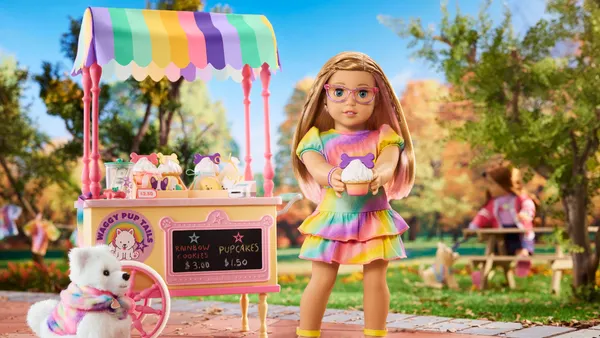Dive Brief:
- Mattel reported that sales were flat, at $1.8 billion, in the third quarter while operating profit rose slightly year over year, according to a company release.
- Adjusted for restructuring costs, asset sales and other one-off events, operating income fell by 1%. For the year, Mattel, citing market volatility, trimmed its guidance on margin and profits, with the lower end of its adjusted EBITDA range revised down by $50 million.
- In a call with analysts, Mattel CEO Ynon Kreiz said the company, based on its own research, expects consumers to spend as much or more during the holiday season compared to 2021.
Dive Insight:
Kreiz projected some optimism after Mattel signaled it would pull in less profit this year and might need to temper its expectations for 2023.
Mattel still expects growth on the top line, with estimates of an 8% to 10% increase in net sales, with much of that growth likely to be riven by some of its top names, including Hot Wheels, Fisher-Price and Thomas & Friends, said Chief Financial Officer Anthony DiSilvestro.
On the earnings call, Kreiz pointed to the sector’s historical resilience during economic turbulence. The company also noted in an investor presentation that it was the No. 1 toy company in the U.S. and globally in its leading categories in Q3, based on NPD data.
“We are seeing purposeful brands and quality toys resonating with consumers now more than ever,” he said. “And we believe that important big brands, quality products will end up winning the season. This is what we're focused on. This is where we excel.”
Where Mattel expects to feel some pain is on profit, with expected margins down from last year. Still, the company estimates its adjusted EBITDA and earnings to grow over last year.
In Q3, Mattel actually saw its gross margin increase, with price increases and cost cuts offsetting inflation in the company’s own costs. On the call, Kreiz said that the company “successfully" put in place price increases for customers during the year. “While it is still early, we have not seen a meaningful impact on consumer demand,” he added.
Still, the company has plenty of challenges. In cutting back guidance, Mattel said it is “operating in a challenging macro-economic environment with higher volatility, including inflation, that may impact consumer demand.” The company added that there could be “further volatility” and “unexpected disruption” in areas like exchange rates, inflation, global economic conditions, consumer demand and labor market fluctuations.
But so far Mattel is weathering the current environment with less financial pain than rival Hasbro, which suffered a more than 30% drop in operating profit in its consumer products unit in Q3 and sales falling 15% across the company.














